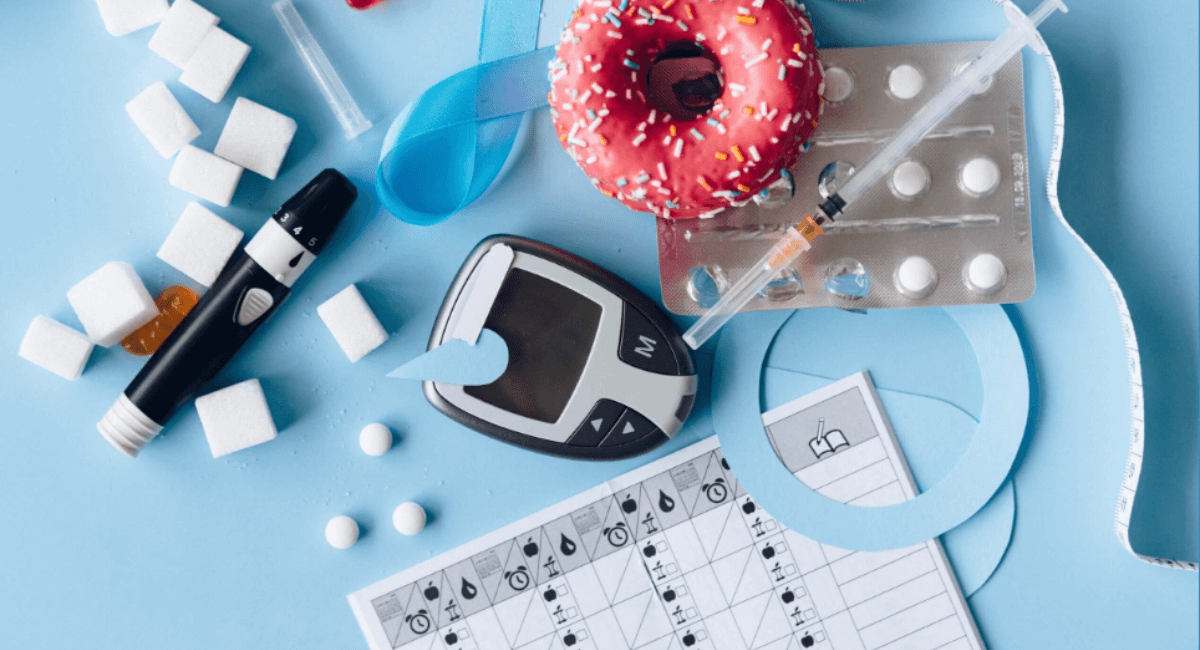Male hormonal imbalance is a widespread yet often overlooked health condition that affects millions of men worldwide. While hormonal fluctuations are commonly associated with women’s health issues like menopause, men experience significant hormonal changes throughout their lives that can dramatically impact their physical, mental, and emotional well-being.
Hormones serve as chemical messengers in the body, coordinating essential functions through the bloodstream to muscles, organs, and tissues. These powerful substances regulate everything from metabolism and sleep cycles to sexual function and mood stability. When these delicate chemical balances become disrupted, the consequences can be far-reaching and life-altering.
The primary male hormone, testosterone, plays crucial roles in development, energy levels, sexual health, and physical well-being. However, men also rely on proper levels of cortisol, insulin, and thyroid hormones for optimal functioning. As men age, particularly from middle age onward, the body naturally produces fewer hormones, which can lead to bothersome symptoms ranging from mild to severe.
Unfortunately, many men suffer in silence, attributing their symptoms to normal aging or stress rather than recognizing them as signs of hormonal imbalance. This lack of awareness often prevents men from seeking appropriate treatment, leading to decreased quality of life and potential long-term health complications. Understanding the signs, causes, and treatment options for male hormonal imbalances is essential for maintaining optimal health and vitality throughout life.
Common Symptoms of Male Hormonal Imbalance

Physical Symptoms
Male hormonal imbalance manifests through numerous physical symptoms that can significantly impact daily life. Low testosterone levels commonly cause decreased muscle mass, loss of bone density leading to osteoporosis, and reduced body hair growth. Men may experience unexplained weight gain, particularly around the midsection, as hormonal imbalances affect metabolism and fat distribution.
Energy levels often plummet, with many men reporting chronic fatigue and weakness that doesn’t improve with rest. Sleep disturbances, including insomnia and poor sleep quality, frequently accompany hormonal imbalances, creating a cycle where poor sleep further disrupts hormone production.
Other physical manifestations include hot flashes, excessive sweating, dry skin, joint stiffness, and muscle aches. Some men develop gynecomastia, an enlargement of breast tissue caused by imbalanced estrogen and testosterone levels. Hair loss or thinning, particularly male pattern baldness, can accelerate when hormone levels become disrupted.
Sexual and Reproductive Health
Sexual health symptoms are among the most distressing aspects of male hormonal imbalance. Decreased libido or complete loss of sex drive is a primary indicator of low testosterone levels. Erectile dysfunction becomes more common as testosterone levels decline, affecting both sexual performance and confidence.
Men may experience reduced sensitivity and difficulty achieving orgasm, further impacting sexual satisfaction and intimate relationships. In severe cases, hormonal imbalances can lead to infertility as testosterone production affects sperm quality and quantity.
Mental and Emotional Symptoms
The psychological impact of hormonal imbalance in men is often underestimated but equally significant. Depression and anxiety frequently accompany hormonal disruptions, particularly when testosterone levels are low. Men may experience mood swings, irritability, and difficulty managing stress.
Cognitive function can also suffer, with many men reporting difficulty concentrating, memory problems, and mental fog. These symptoms can affect work performance and daily activities, creating additional stress that further exacerbates hormonal imbalances.
Primary Causes of Male Hormonal Imbalance

Age-Related Changes
Natural aging is the most common cause of hormonal imbalance in men. Testosterone levels typically begin declining around age 30, decreasing by approximately 1% per year. This gradual decline, sometimes called andropause or “male menopause,” can lead to the symptoms described above.
Medical Conditions and Treatments
Several medical conditions can disrupt hormone production. Diabetes, both type 1 and type 2, significantly affects insulin and other hormone levels. Thyroid disorders, including hypothyroidism and hyperthyroidism, create widespread hormonal disruptions.
Cancer treatments, particularly chemotherapy and radiation therapy, can damage hormone-producing glands. Pituitary tumors, whether benign or malignant, can interfere with the body’s master hormone control center.
Lifestyle Factors
Modern lifestyle choices significantly contribute to hormonal imbalances. Chronic stress elevates cortisol levels, which can suppress testosterone production and disrupt other hormones. Poor diet, particularly one high in processed foods and refined sugars, affects insulin sensitivity and hormone regulation.
Obesity creates a cascade of hormonal disruptions, as excess fat tissue produces estrogen and affects testosterone levels. Conversely, eating disorders and restrictive diets can also disrupt hormone production.
Lack of physical exercise contributes to hormonal imbalances by affecting insulin sensitivity and testosterone production. Excessive alcohol consumption and drug use, including anabolic steroids, can severely disrupt natural hormone production.
Types of Male Hormonal Imbalance
Andropause (Low Testosterone)
Andropause, often called “male menopause,” occurs when testosterone levels drop significantly below normal ranges. This condition affects energy, mood, sexual function, and physical strength. Unlike female menopause, andropause occurs gradually over many years.
Thyroid Disorders
Hypothyroidism, characterized by underactive thyroid function, slows metabolism and can cause weight gain, fatigue, and depression. Hyperthyroidism, involving overactive thyroid function, accelerates metabolism and can cause anxiety, weight loss, and heart palpitations.
Adrenal Fatigue
Chronic stress can lead to adrenal fatigue, where the adrenal glands cannot produce adequate cortisol levels. This condition causes persistent fatigue, difficulty handling stress, and various physical symptoms.
Insulin Resistance

Insulin resistance occurs when cells become less responsive to insulin, leading to elevated blood sugar levels and increased risk of diabetes. This condition often accompanies other hormonal imbalances and contributes to weight gain and metabolic dysfunction.
Diagnosis and Testing
Healthcare providers typically diagnose hormonal imbalances through comprehensive blood tests that measure various hormone levels. Common tests include testosterone, thyroid hormones (TSH, T3, T4), cortisol, and insulin levels.
Since hormone levels fluctuate throughout the day, providers may order specialized tests like glucose tolerance tests or multiple samples taken at different times. Physical examinations, including testicular and prostate checks, help identify structural abnormalities.
Advanced testing may include imaging studies such as ultrasounds, MRIs, or CT scans to examine hormone-producing glands. At-home testing kits are available for some hormones, though professional medical evaluation remains essential for accurate diagnosis and treatment planning.
Treatment Options
Hormone Replacement Therapy
For men with clinically low hormone levels, hormone replacement therapy can be highly effective. Testosterone replacement therapy is available in various forms, including injections, gels, patches, and pellets. Bioidentical hormone therapy uses hormones that match the body’s natural hormones, potentially reducing side effects.
Thyroid hormone replacement with medications like levothyroxine can restore normal thyroid function in men with hypothyroidism. Treatment plans are individualized based on specific hormone deficiencies and patient needs.
Lifestyle Modifications
Natural approaches to hormone balance focus on lifestyle changes that support optimal hormone production. Regular exercise, particularly strength training, can boost testosterone levels and improve insulin sensitivity. Adequate sleep is crucial, as many hormones are produced during sleep cycles.
Stress management techniques, including meditation, yoga, and counseling, help regulate cortisol levels and support hormonal balance. A balanced diet rich in healthy fats, lean proteins, and complex carbohydrates provides the nutrients necessary for hormone production.
Weight management through proper diet and exercise can significantly improve hormonal balance, particularly for men with obesity-related hormone disruptions. Limiting alcohol consumption and avoiding recreational drugs supports natural hormone production.
Medical Interventions
For underlying medical conditions causing hormonal imbalances, targeted treatments may be necessary. Anti-androgen medications can help men with excess testosterone or related conditions. Medications like metformin may be prescribed for insulin resistance and related metabolic issues.
In cases involving tumors or structural abnormalities, surgical intervention may be required. Regular monitoring and follow-up care ensure treatment effectiveness and safety.

